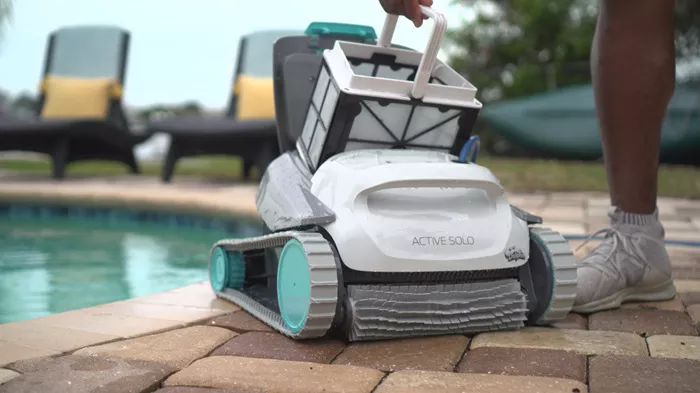In today’s world, environmental sustainability is a major focus across various industries. Cleaning practices play a crucial role in this endeavor, and scrubbers have become indispensable tools in promoting environmental health. Scrubbers, which include floor scrubbers, air scrubbers, and chemical scrubbers, are designed to enhance cleanliness while minimizing environmental impact. This article explores how scrubbers contribute to environmental sustainability, highlighting their benefits and positive effects on the environment.
Introduction to Scrubbers and Their Environmental Role
Scrubbers are specialized cleaning devices used to clean surfaces, air, and equipment. They operate using a combination of mechanical, chemical, or filtration methods. Floor scrubbers are used for cleaning hard surfaces like tiles and concrete. Air scrubbers focus on removing airborne particles and pollutants, while chemical scrubbers deal with removing contaminants from various processes.
The environmental benefits of scrubbers stem from their ability to improve cleaning efficiency, reduce waste, and support better health and safety practices. Understanding how these devices contribute to environmental protection is essential for appreciating their role in sustainable cleaning practices.
Reducing Chemical Usage
Efficient Cleaning with Fewer Chemicals
One of the key environmental benefits of scrubbers is their ability to reduce the amount of cleaning chemicals required. Traditional cleaning methods often rely heavily on chemical solutions that can be harmful to the environment. Scrubbers, especially those with advanced technologies, are designed to use fewer chemicals while still achieving effective cleaning results.
For example, modern floor scrubbers often use precision chemical dosing systems that apply only the necessary amount of cleaning solution. This not only reduces chemical waste but also minimizes the potential for chemical runoff, which can lead to environmental contamination.
Minimizing Environmental Impact
By reducing the quantity of chemicals used, scrubbers help to lower the environmental impact associated with cleaning processes. Fewer chemicals mean less risk of pollution from chemical runoff, which can adversely affect water sources, soil, and wildlife. Additionally, some scrubbers use biodegradable or eco-friendly cleaning agents, further minimizing their environmental footprint.
Improving Air Quality
Air Scrubbers and Pollution Control
Air scrubbers are designed to improve indoor air quality by removing airborne pollutants, such as dust, allergens, and other particulate matter. These devices are particularly beneficial in environments with high levels of airborne contaminants, such as industrial settings or commercial buildings.
Air scrubbers work by filtering out pollutants and particles from the air, which helps to reduce respiratory issues and other health problems associated with poor air quality. Improved indoor air quality contributes to a healthier living and working environment, which aligns with broader environmental goals of promoting human well-being.
Reducing Indoor Air Pollution
In addition to improving health outcomes, air scrubbers help to reduce indoor air pollution, which can have long-term environmental benefits. By capturing and removing airborne pollutants, air scrubbers prevent these contaminants from being released into the environment, thus reducing the overall pollution load.
Enhancing Waste Management
Efficient Waste Disposal
Scrubbers, particularly those used in industrial settings, often incorporate features that enhance waste management practices. For instance, floor scrubbers equipped with recovery tanks collect and store dirty water and debris during the cleaning process. This allows for the proper disposal of waste rather than allowing it to enter drainage systems.
Efficient waste management is crucial for minimizing environmental contamination. By collecting and disposing of waste materials in a controlled manner, scrubbers help to prevent pollutants from reaching water sources and other sensitive environmental areas.
Recycling and Reuse
Some scrubbers are designed to recycle cleaning solutions and water. For example, certain advanced floor scrubbers have filtration systems that allow for the reuse of water, reducing the need for frequent changes and minimizing wastewater. This recycling capability supports sustainable cleaning practices by conserving resources and reducing environmental impact.
Reducing Resource Consumption
Energy Efficiency
Scrubbers can contribute to environmental sustainability through their energy-efficient designs. Many modern scrubbers are engineered to use less energy compared to traditional cleaning methods. For example, newer models of floor scrubbers often come with energy-saving features such as automatic shutoff systems and adjustable cleaning settings.
Energy efficiency in scrubbers not only reduces operational costs but also decreases the overall carbon footprint associated with cleaning operations. By consuming less energy, these devices contribute to the reduction of greenhouse gas emissions and support broader environmental conservation efforts.
Durability and Longevity
The durability and longevity of scrubbers also play a role in their environmental benefits. High-quality scrubbers are designed to withstand rigorous use, which means they have a longer lifespan compared to less durable equipment. Longer-lasting equipment reduces the frequency of replacements and minimizes the environmental impact associated with manufacturing, transportation, and disposal.
see also: Can a Floor Scrubber Clean Grout?
Promoting Health and Safety
Cleaner and Safer Environments
Scrubbers help create cleaner and safer environments, which aligns with environmental sustainability goals. By effectively removing contaminants from surfaces and air, scrubbers reduce the risk of health issues such as allergies, respiratory problems, and infections. This not only benefits individuals but also contributes to a healthier overall environment.
Safer working environments also reduce the likelihood of accidents and injuries, which can have indirect environmental benefits. For instance, fewer accidents mean less risk of hazardous material spills and the associated environmental damage.
Compliance with Regulations
Using scrubbers can help organizations comply with environmental regulations and standards. Many industries are required to meet specific cleanliness and air quality standards to operate legally. Scrubbers enable organizations to meet these requirements, thereby supporting regulatory efforts to protect the environment.
Conclusion
Scrubbers play a significant role in promoting environmental sustainability through various means. They reduce chemical usage, improve air quality, enhance waste management, and support resource conservation. By incorporating energy-efficient designs and durable materials, scrubbers contribute to a more sustainable approach to cleaning.
Understanding the environmental benefits of scrubbers helps users make informed decisions about their cleaning practices and equipment choices. Embracing scrubbers as part of an environmentally friendly cleaning strategy supports the broader goals of reducing environmental impact and promoting a healthier, cleaner world.

